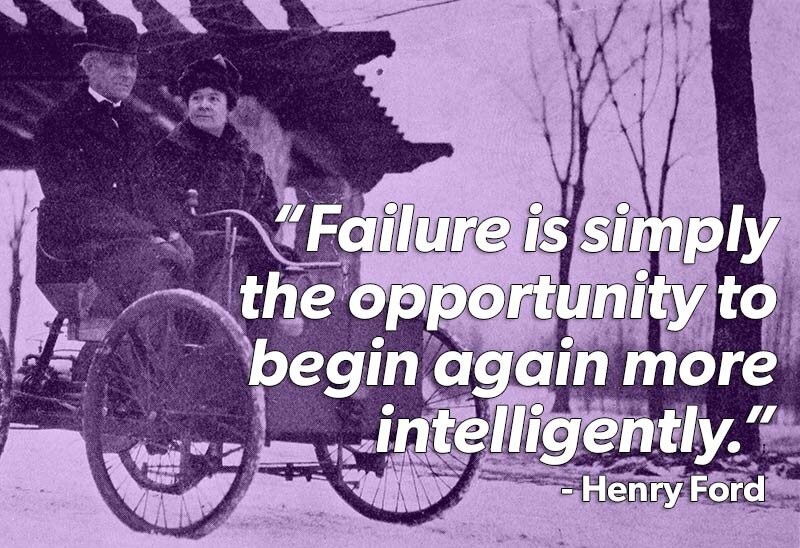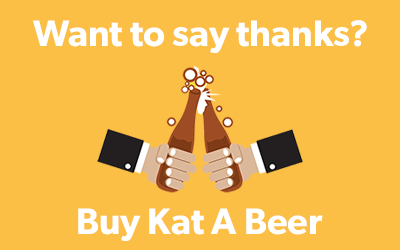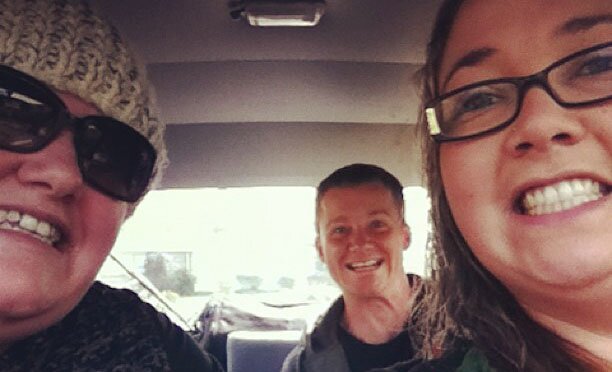I think it’s important to talk about failure. But to do that, we first have to define success. In crowdfunding, success is meeting your funding target, within the time you have set.
With that definition, to date, only one of my projects has failed. It was my first one. I’ve spent time thinking about why it failed, and how I could have done better. I’ve applied my learnings to every successive project I’ve worked on. So here’s what I’ve learned.
1. It’s about you
I had to talk my first client into crowdfunding. He had a big aspiration, and he had seen success. He had a big mailing list and a big Facebook following. Certainly big enough that he’d be able to raise the $6,000 goal that got set. But I had to talk him into it. I had to bug him to post, to send emails, or make updates. It was frustrating and annoying for us both.
He wasn’t committed to the campaign. That means that I don’t try to talk people into working with me anymore – in fact, those that use the stick “if I choose to hire you” during a conversation with me are more than likely to be shown the door.
I’m happy to chat about the opportunities crowdfunding will give you, and I’ll point you in the direction of handy resources – this site is full of them. If you don’t want to work with me, that’s cool. I’ll wish you luck and make sure I’m on your list so I can check it out as a potential backer when you launch.
The fact is, most of the time I’ve got enough work on. My needs are low, and I only want to work with motivated individuals who see the value I bring.
2. It’s about your connections
I ran the campaign – I came up with the strategy, bought in friends with PR expertise, wrote the copy… I did it all pretty much.
But the fact is, my crowd wasn’t the one that was going to pony up the cash. Without his commitment to the campaign, it was hard to reach his crowd – even with access to the lists and the groups. It needed to be him out there talking to people. He needed to be hustling and coming up with the content. He needed to talk to those people from his point of view. There was a disingenuity with me running the campaign. People felt it. They didn’t give.
3. Get the platform right
I think I did him a disservice with the platform he was on. To be honest, the right platform didn’t really exist until a week ago, but maybe we might have had better success with some rewards on offer.
As it stands, the choice of platform meant he got all the money we did raise (nearly 20%), which is some consolation.
4. Stick to what you know
This project was about something I know NOTHING about. I don’t have connections (media, online, personal or otherwise) that would have given him a leg-up. I thought I could crowdfund anything, but this was quite the reality check.
As it stands, I know a little about a lot. Movies, food, music, engineering, publishing, arts, apps, software design, games… I have a lot of connections and a lot of awareness, but these days I do ask myself the question “do I know anything about this topic?” If the answer is no, I’m going to be very honest about it.
Takeaways
This project changed my entire approach as to what I do with clients. It turned me from a contractor to a coach. And yes, there is a distinction.
A contractor can run your entire campaign – hand over the reigns, and they’ll go for it. As far as crowdfunding goes, I’m really dubious about this. At the very least, your contractor needs to be part of your team. Be wary of anyone who says they can take care of it all. There’s a good chance they can’t. Crowdfunding is personal and under no circumstances should you be pushed out of the way by someone else. By all means, hire someone to help with PR, get your project checked to ensure it makes sense, get help from someone who knows what they’re talking about but stay involved and in charge. You can’t farm out the responsibility for your campaign and be successful. It’s just not the way the game works.
A coach guides you through the process. Over the last six months I’ve been refining my business model – something I’ll continue to do – but I think I’ve finally hit my balance. I know how to craft a kick-ass campaign, and I know how to help a large number of people do it for themselves. I know a lot about crowdfunding. I can help make sure you’ve ticked all the boxes, and I can offer feedback, advice, and resources designed to help you succeed.
What I can’t do is do all the work for you. It doesn’t work for either of us, or the community at large. I want to increase the success rate of crowdfunding. That doesn’t work if I can only take on 6 projects a year. And in all honesty, that business model means I’d be taking you and your crowd for a ride. So what I’ve learned is that my role is to be an educator and a guide, not a campaign manager. Additionally, I help optimise campaigns to ensure people want to back them, and you’re not digging yourself into a hole.
As it stands, you can view all projects I’ve had a hand in – including the failures – past and present on this page. If you’re interested in coaching, I’m currently looking for some projects to be involved in a trial I have coming up. Get in touch and I might just select yours!




















